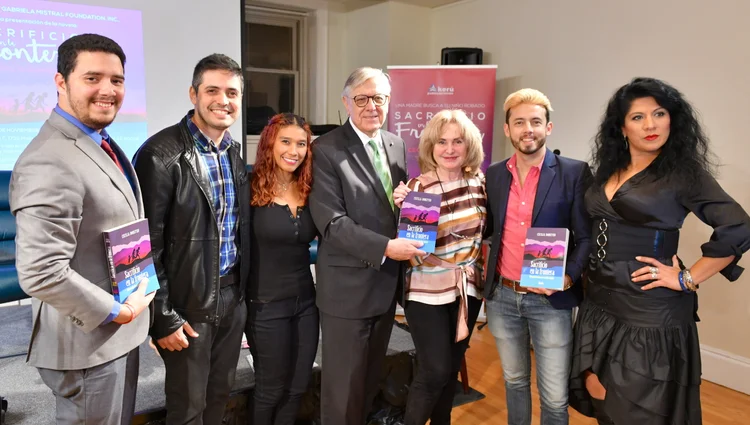MY EARLY CULTURE SHOCK EXPERIENCES
Many friends of mine have suffered from culture shock. At the time they knew they were suffering, but had no idea this affliction actually had a name. I think it might have helped if they had known that culture shock has been researched, studied and catalogued, and is considered a kind of illness.
I had culture shock. Not once. Multiple times. You see my dad was a diplomat. We were all Chileans and he worked for the Chilean Foreign Service. So we were always moving from place to place, country to country. Not for sightseeing, but to establish ourselves for a period of time, which was often four to five years.
This disease sounds pretty benign but it isn’t. Even so, it was never mentioned in our family. Looking back, all of us, kids and parents, went through it, sometimes pretty severely.
Why wasn’t it mentioned? Well, a diplomat’s family is much like a military family. They are sent overseas for work, not pleasure. There is no way to get out of it.
You are expected to adapt, fit in, learn the new language and customs as quickly as possible, get good grades in school, make friends, all in the span of a few weeks or in the worst of cases, months.
I don’t know how other people, or other families do this. Only how my four siblings and I did it. And how my parents did it,
Since we had been exposed to regularly occurring upheavals since babyhood we didn’t know any better, and expected it. This probably helped. We made a huge effort. Since no one told us this effort was unusual, we didn’t think it was.
For most of my childhood and adolescence, when overseas, I arrived (usually in mid year) at a new school, was introduced as the foreign girl to the rest of the class, and then expected to “catch up” and “pass the grade.”
I must admit that being the exotic girl from somewhere else did help. One or two of my classmates always approached me to make friends. When teachers saw me studying extra hours, they were probably more lenient. At least the first year. By the second year, I was expected to do as well (by the teachers), or much better (by my parents) than others in the class. But I had been given a helping hand. I was on my way to overcoming culture shock.
This process however, is NOTHING compared to what happened when we went back to our home country. It was something much worse: reverse culture shock. Yes, this is even harder to go through than plain old culture shock.
Wait, you’re thinking. She was going home! Shouldn’t have that been easier?
Nope. Much worse.
Since I was Chilean, looked Chilean and had a Chilean accent, I was given absolutely no slack. I wasn’t “exotic”. Teachers, classmates and relatives did not understand what I was going through, why I was sad and disoriented. They expected me to be just like everyone else the first day back.
It hand´t been so bad the first time back at age seven. I was little, so I was allowed to be different. However, as I neared my teenage years, it got harder. If you think changing schools is bad, I can tell you changing schools on going back “home” is close to hell.
My first negative experience was when I was eleven. Cliques had formed. My classmates were banded together with crazy glue.
My childhood friends from five years back were the worst, especially if my and their parents knew each other. Their parents had probably said to mine: “Now be sure to be nice to Cecilia because she just returned from overseas”.
The kiss of death.
I dressed differently, spoke differently, didn’t understand the local expressions, wanted to talk about another country. It was like I had the plague.
I learned fast though, about the dos and don’ts. The next time I returned “home”, it was easier. I also had a couple of new foreign culture shock experiences under my belt, which had taught me a couple of useful things.
Ok, so if you are still in school or college, let me give you some tips. I’ll give other tips for adults next time. Or maybe some of you out there have some of your own. This time I’m concentrating on the younger group.
{C}1. If possible, try to get rid of any foreign accent or sayings.
{C}2. Tune in to local expressions and use them a lot.
{C}3. Buy clothing that fits the local fashion, and wear it.
{C}4. Laugh at jokes even if you don’t understand them (eventually you will),
{C}5. Try not to talk about the last place where you lived. It’s been my experience no one will be interested.
{C}6. Try telling people about your current activities, say a weekend with your cousins.
{C}7. Observe, observe, observe. Listen, listen, listen. Watch local body language. Imitate it whenever you can, especially when expressing delight sadness or dismay. Your cultural survival may depend on it.
Ok, I’ve told my story. Now it’s your turn. Tell me your stories about overcoming culture shock.

